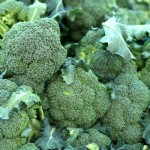Welcome back, and thanks for joining me again! Today, we’re going to talk about everyday supermeals, and how you can prepare delicious, nutritious meals on your own. When I was growing up, I learned how to cook, but not how to cook healthy meals. It took a lot of work, and many years, until I […]
Search Results for: spinach
Eat Healthy While Dining Out
Who doesn’t love to eat out? Every so often, eating a meal that you didn’t have to prepare yourself is a great treat. But if you are going to eat out, do yourself a favor and skip the fast food joints.
Magnesium
Magnesium is a key component of bones; 60% of our magnesium is in bones. It’s also involved in more than 300 metabolic reactions, that control things like energy production from fats and carbohydrates, DNA synthesis, protein synthesis, enzyme activity and cell signaling.
Vitamin K
Most people associate vitamin K with blood clotting, since the vitamin plays an essential role in several reactions that control blood clotting. New research suggests a role for vitamin K in bone health.
Calcium
Calcium is best known as a key component of bones, and in fact 99% of the calcium in our bodies is in bones in teeth. The other 1% in blood and cells is essential for many metabolic reactions.
Vitamin B2 (Riboflavin)
Vitamin B2 plays an essential role in the metabolic system that produces energy from carbohydrates and fats. It is also a co-factor for reactions that convert other vitamins to active forms. Certain enzymes that act as antioxidants depend on vitamin B2, and this vitamin is critical to iron utilization in the body.
Manganese
Manganese is a mineral nutrient, required in small amounts, but extremely important to enzyme activity. Mitochondria, the cell’s energy-producing engines, are highly susceptible to oxygen damage.
Potassium
Potassium is the key electrolyte inside cells, and works with sodium to keep body fluids in balance. In addition to its role as an electrolyte, potassium is a component of bones, and is involved with muscle contraction, protein synthesis, acid-base balance and the electrical signals in the heart.









 Are you ready to look better, feel more energized, and get back that youthful feeling you remember having as a kid? I can help you on a journey that will change the way you eat — for good. My
Are you ready to look better, feel more energized, and get back that youthful feeling you remember having as a kid? I can help you on a journey that will change the way you eat — for good. My 














 As a healthy cooking expert, health coach and TV host,
As a healthy cooking expert, health coach and TV host, 


